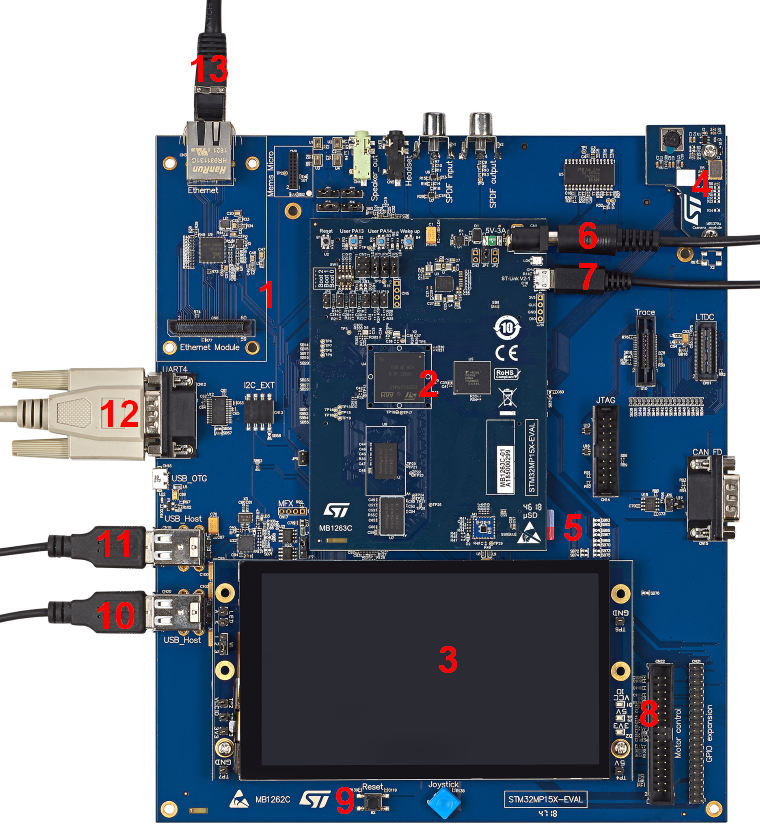This article aims to present how to configure and start for the first time an STM32MP157x-EV1 Evaluation board that has just been flashed. It is valid for the STM32MP157A-EV1 ![]() , STM32MP157D-EV1
, STM32MP157D-EV1 ![]() , STM32MP157C-EV1
, STM32MP157C-EV1 ![]() and STM32MP157F-EV1
and STM32MP157F-EV1 ![]() Evaluation boards: the part numbers are specified in the STM32MP15 microprocessor part numbers article.
Evaluation boards: the part numbers are specified in the STM32MP15 microprocessor part numbers article.
Now that the image is flashed on the STM32MP157x-EV1 Evaluation board, let's finalize the system configuration:
- Step 1: check the configuration of the switches and jumpers:
- The boot related switches must be configured so that the device (e.g. microSD card ) on which the image has been flashed is selected as boot source.
- The jumpers related to the UART4 of the STM32MP15 microprocessor device must be set so that UART4 is used by the ST-LINK/V2-1 controller (7)
- The figure below shows the boot switches for the recommended boot from microSD card.
- Step 2: (optionally) connect a USB keyboard and/or a USB mouse (not provided) using the USB type-A ports (10 and 11).
- Step 3: (optionally) connect an Ethernet cable (not provided) to the dedicated connector (13).
- Step 4: if the Flash device is a microSD card, check that it is inserted into the dedicated slot (5).
- Step 5: connect the delivered power supply (5V, 3A) to the power connector (6) of the MB1263 daughterboard. Check that the display board (MB1230) is well connected. In this case, the 2 green LEDs (8) are switched on.
- Step 6: (optionally) install and configure a remote Terminal program (e.g. Minicom on Ubuntu Linux PC or Tera Term on Windows PC) onto your host PC, and connect
- either the ST-LINK/V2-1 USB micro-B port (7) to a host PC that runs a Terminal program with ST-LINK/V2-1 virtual port (recommended method)
- or the RS232 UART4 connector (12) to the host PC that runs a Terminal program with COM1 port.
- the ST-LINK/V2-1 USB micro-B port (7) and the RS232 UART4 connector (12) cannot be used simultaneously: see how to set the JP4 and JP5 jumpers to select one of the two configurations
- Step 7: press the reset button (9) to reset the board
The board boots and the system will be available after few seconds.

